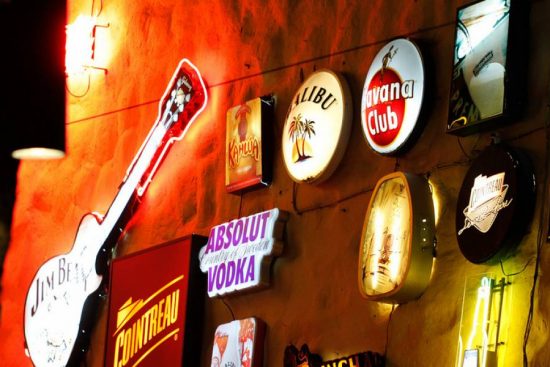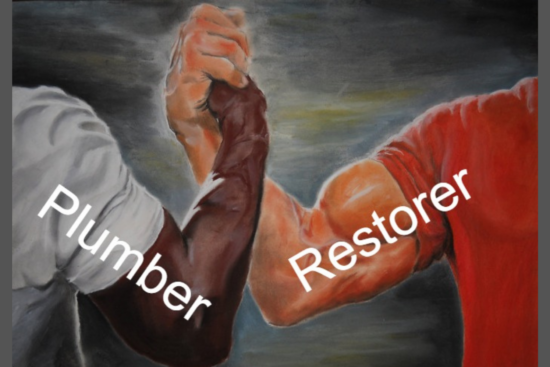- © 2026 United Restorers. All Rights Reserved.
Breaking: Changes to Water Damage Advertising
Category: Things You Should Know • January 20, 2017
Google recently announced all ads on the right-hand side of a Google search page (known as sidebar ads) have been removed.
The removal of these sidebar ads reduces the total number of ads you’ll see on a Google search page from 11 to 7.
This article originally appeared on Cleanfax and was co-written by Jonathan Grubb (President of United Restorers) & Dan York (CEO of Stellar e-Marketing).
This change to Google’s search page is one of the most  significant changes in Google’s history. Because most of us are doing something in the way of water damage advertising (promoting our website and services using paid advertisements, SEO, etc.) below are a few things to watch out for over the next three months and steps you can take to keep your website on Page 1.
significant changes in Google’s history. Because most of us are doing something in the way of water damage advertising (promoting our website and services using paid advertisements, SEO, etc.) below are a few things to watch out for over the next three months and steps you can take to keep your website on Page 1.
How this affects your paid ads
Ads at the top of Google’s search page will most likely become more expensive as a result of the sidebar ads’ elimination. In addition, where your ad currently sits on the page (e.g. number one, number two, etc.) may change drastically as top-spots in water damage advertising become more competitive.
How this affects your SEO
In some cases, a fourth ad may appear at the top of the search results page. Unfortunately, this fourth ad will push down regular search results (“organic” results) even farther.
“We’ve been testing this layout for a long time, so some people might see it on a very small number of commercial queries,” a Google spokesperson told The SEM Post. “We’ll continue to make tweaks, but this is designed for highly commercial queries where the layout is able to provide more relevant results for people searching and better performance for advertisers [emphasis added].”
What does Google mean by “commercial queries,” you might ask. This term refers to searches in which a customer is ready to buy. As an example, Googling “buy laptops” shows four ads above the organic search results.
In our research over the past few days, 100 percent of searches for restoration or carpet cleaning services showed a total of four ads at the top of the page. As we said before, this new fourth ad pushes non-paying search results down further. It also limits the number of these regular or organic searches on Google’s first page.
What you need to do (paid ads or PPC advertising)
If you currently manage PPC campaigns for your company, pay special attention to the statistics below over the next 90 days (Note: if your AdWords account is managed by a third party, request these statistics at least twice per month):
- Average ranking: 1.0 is best (especially for emergency water damage advertising); if you normally average 3.0+, you may see this number increase over the next few months. Keep in mind the higher the average ranking, the lower — or further back — your ad will appear on Google. And because of Google’s right-sidebar removal, your ads may now appear at the bottom of Page 1, on Page 2, etc.
- Cost-per-click (CPC): As the top three to four ad spots become more competitive, the cost you pay per click may increase. While you may be comfortable spending a few dollars more per click, double check your “maximum daily budget” setting in AdWords. If your budget is set too low, your ads may not be seen by people searching Google or may go offline prematurely each day.
As mentioned above, the change to Google’s search results page provides “better performance for advertisers.” But over the next few months, smart water damage advertisers will be constantly monitoring their ads to determine how exactly this change will affect them and what the lasting impact might be.
What you need to do (SEO)
There have always been people who click on the paid ads in Google and those who don’t. Google pushing down the natural, non-paid results will only force those who never click on the ads to go farther down the screen.
Ask yourself this question, “Now that Google forces four larger ads up to the top of the screen, will I now click on those ads when I didn’t before?” Some may say yes, some no. Ask your friends and employees this question and see what they say.
Currently, below those four new ads, you will have Google Maps and then the natural listings. Eight years ago, I could have told you simply being on Page 1 of Google would get you some phone calls. Five years ago, you had to be in the top five of Page 1 to get phone calls. And over the past three or so years, you really had to be in the top three of Google to get many good phone calls.
The game is getting harder and harder, but luckily it is still worth playing — and even more so. Why? Because every year is another year your competitor says to himself, “Internet marketing doesn’t work.” For you, this is good. Your competition has lost his persistence.
Those who persist through these changes are greatly rewarded. Anyone who persists in business knows exactly what I am talking about. It’s like living through a bad economy with your business: A lot of guys close their doors, and when the storm blows over, fewer businesses are left standing and get to eat up more of the market share simply because there are less players in the game.
SEO-wise, the old days of sloppy SEO are over. And good riddance if you ask me. Techniques like, “backlink-the-hell-out-of-my-website” or “spam-my-website-with-tons of keywords-I-HOPE-will-get-business” or “write-tons-of-articles-hoping-to-produce phone calls” are ancient history. Most of those techniques will damage you now. Google has done a pretty decent job of getting rid of these techniques that have been overused.
In the future, you have to be up on the top three of Google’s natural results more than ever before. Those are your phone call spots. For your home city, you really need to be up in the maps section, which is more and more relevant every year. You must no longer employ sloppy, lazy or hasty SEO techniques to your website.
If it seems too easy or even has a hint of slime, it probably is, and in the long run, it will hurt you. The short-term, cheap money you’re probably spending on this will financially hurt you much more in the long run.
Regardless of Google’s announcement about sidebar ads, there is always an opportunity in every bad situation — if you’re looking for it.



